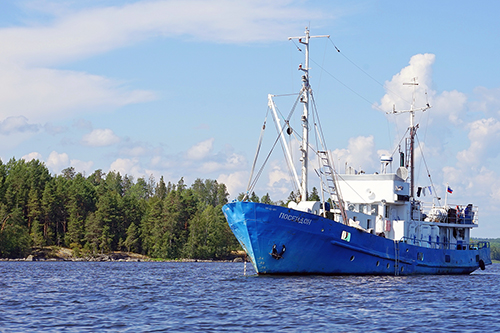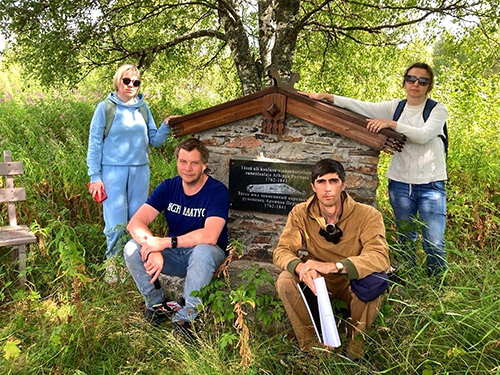Researchers of the Institute of Linguistics, Literature and History KarRC RAS managed to collect letters from nine soldiers who wrote to their relatives in Karelian or with some phrases in Karelian as a result of the Interregional Marathon Letter Marathon "Hengen vägi muaman kieles" ("Morale in the native tongue"). All the letters were digitized and published online. Each letter is accompanied by a textual transcript and translation. Information about the author and the person preserving the letter is also provided. In addition, a list of resources available on this subject in other regions of the country and a list of literature and published sources were compiled.
"What makes this finding unique is that during the wartime the use of the Karelian language, lexically similar to the language of the enemy, was discouraged. That is why such sources are rather rare", – the project authors remark in the preface.
Scientists say that the authors of the letters used their native language to communicate something particularly important and intimate. It fortified the morale, gave them the power to live and fight.
During the project, researchers discovered so-called “Karelian” letters, which are not only historical artifacts, but also handwritten monuments of the Karelian language, which had for a long time had no standard written form.
"These letters, written by Karelians of the Karelian ASSR and Kalinin (now Tver) Region in Livvi, Karelian Proper, and Tver dialects, use both Russian and Latin characters. The language of the letters on the website written by the natives of Northern Karelia can be conditionally called Karelian-Finnish. The authors of these letters were fluent in the literary Finnish language, interlacing it with native dialectal (grammatical, lexical) forms", - the authors of the project explain.
News

May 11, 2025
Scientists have collected and digitized rare letters from the frontline written in Karelian
The results of a Marathon of letters in Karelian and Vepsian were published on the eve of May 9. During three months the Institute of Linguistics, Literature and History KarRC RAS conducted an interregional campaign, where participants were invited to share old letters from/to the frontlines written in the minority languages. As a result, more than 20 letters in Livvi Karelian and Karelian Proper were received. Scientists digitized them and published them with transcripts and translations on a special web resource.
The results of a Marathon of letters in Karelian and Vepsian were published on the eve of May 9. During three months the Institute of Linguistics, Literature and History KarRC RAS conducted an interregional campaign, where participants were invited to share old letters from/to the frontlines written in the minority languages. As a result, more than 20 letters in Livvi Karelian and Karelian Proper were received. Scientists digitized them and published them with transcripts and translations on a special web resource.
See also:

September 11, 2025
Scientists performing integrated monitoring of Ladoga Skerries NP ecosystems
A multidisciplinary expedition to the Ladoga Skerries National Park was performed by specialists from several subdivisions of KarRC RAS. The focus was on the park’s plants and animals. Scientists map the forest cover and its dynamics, identify rare species, and evaluate human impact on the natural ecosystems. The results can be used when planning economic and recreational activities in the protected area.
A multidisciplinary expedition to the Ladoga Skerries National Park was performed by specialists from several subdivisions of KarRC RAS. The focus was on the park’s plants and animals. Scientists map the forest cover and its dynamics, identify rare species, and evaluate human impact on the natural ecosystems. The results can be used when planning economic and recreational activities in the protected area.

September 10, 2025
Karelian scientists performed an expedition in the footsteps of Elias Lönnrot and Into Kondrad Inha
Staff of the Institute of Linguistics, Literature and History KarRC RAS went on an expedition around northern parts of Karelia, visiting places journeyed in the 19th century by collector of Karelian runo songs and author of the “Kalevala” epic Elias Lönnrot and by a well-known Finnish journalist and photographer Into Kondrad Inha.
Staff of the Institute of Linguistics, Literature and History KarRC RAS went on an expedition around northern parts of Karelia, visiting places journeyed in the 19th century by collector of Karelian runo songs and author of the “Kalevala” epic Elias Lönnrot and by a well-known Finnish journalist and photographer Into Kondrad Inha.



